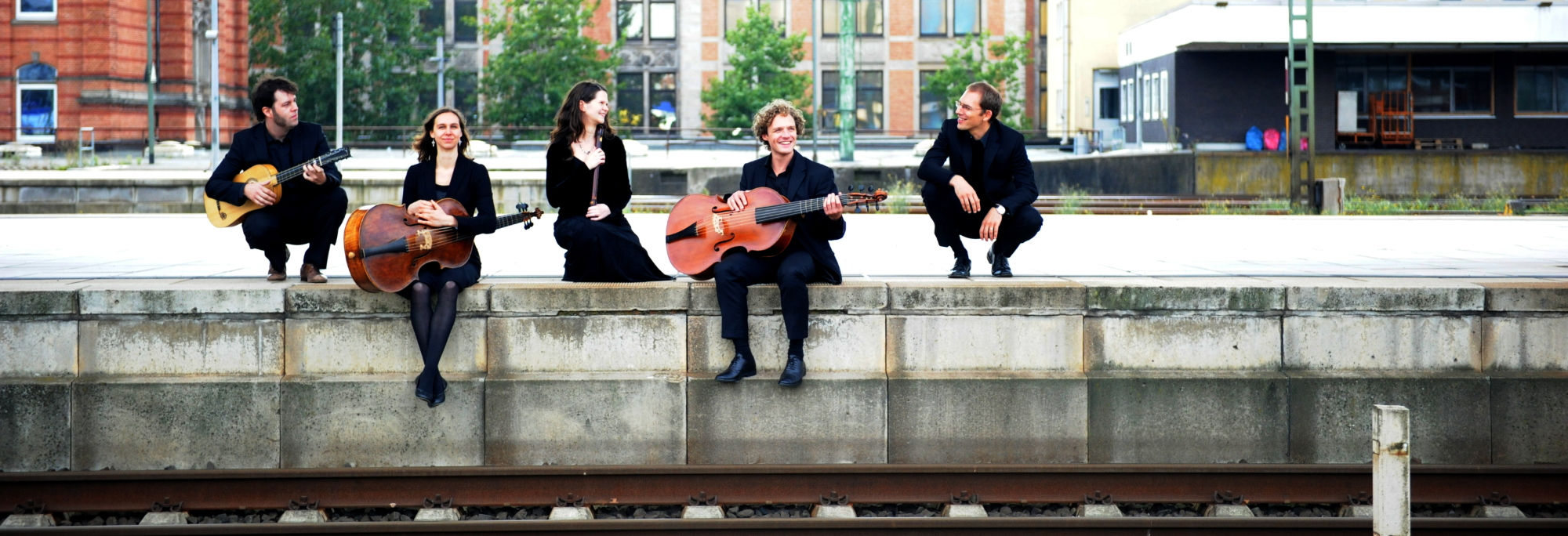
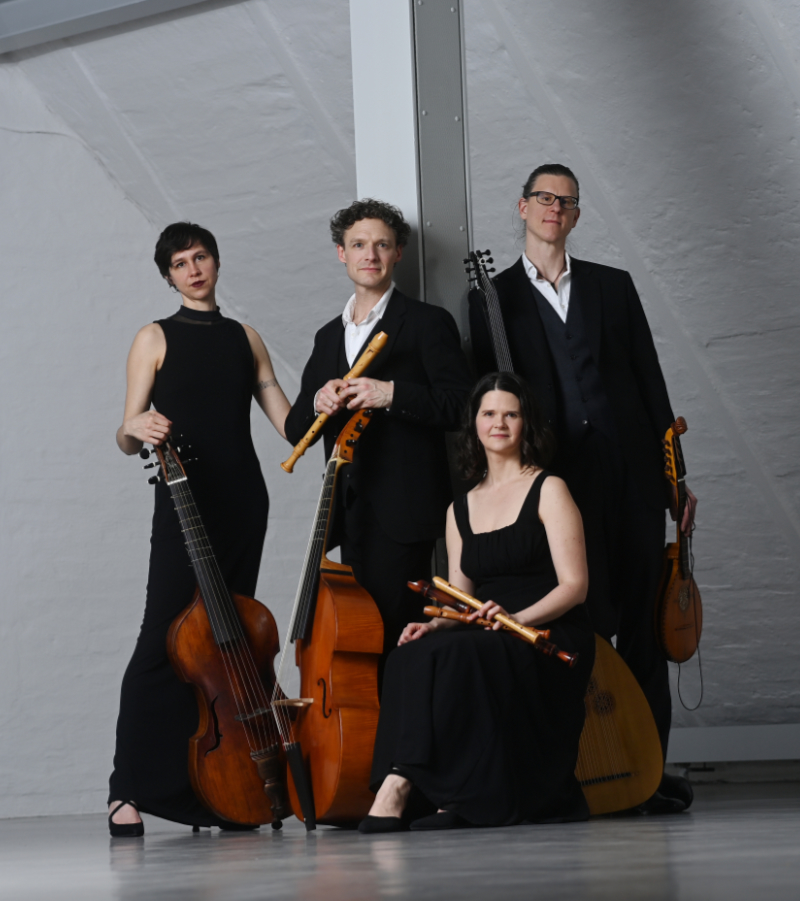
About La ninfea
La Ninfea (Italian the water lily) “is one of the liveliest and most creative early music ensembles in Germany.” (Radio Bremen)
The ensemble feels just as at home in renowned venues such as the Musikverein Wien or the Elbphilharmonie Hamburg as it does in small music societes or schools. This is because La Ninfea is convinced that music belongs to all places and can fascinate everyone, everywhere. La Ninfea's work focuses on concept-based programs, often developed as interdisciplinary projects with puppetry, text or dance, and thus reaches various people interested in culture in a direct and creative way. Historically informed performance practice, detailed research and creative communication do not contradict each other, rather combination they are the driving force for the ensemble. “This is how music should be performed: as if the ink wasn't yet dry, spontaneous and fresh, but with the most precise research beforehand.” (Ö1)
The ensemble
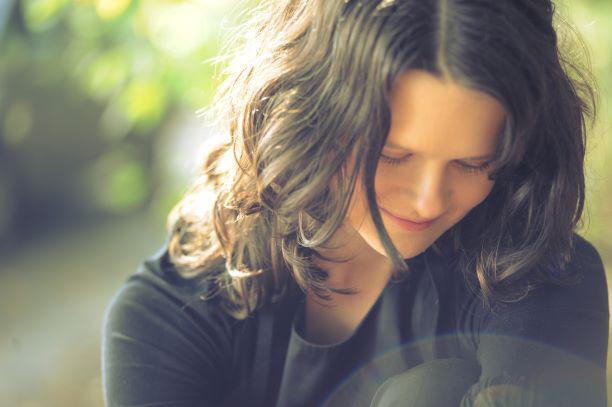
grew up in Upper Bavaria, now lives in Bremen and, with her versatile profile, is one of the most interesting instrumentalists of her generation. She made her solo debut with the world premiere recording of the rediscovered baroque recorder sonatas by A.H. Schultzen (Raumklang 2015), which was enthusiastically received by audiences and the press alike.
In addition to the La Ninfea concepts, she is currently also increasingly devoting herself to interdisciplinary and storytelling programs such as “Storie di Napoli” (2021) or “Conversations with the Devil” (2019) and, in the course of this, also works as an assistant or artistic director for various baroque orchestras.
Barbara Heindlmeier can be heard in concert throughout Europe as a recorder and cornetto player with early and contemporary music, primarily as a soloist and chamber musician with ensembles such as “Weser-Renaissance”, “RIAS Kammerchor”, “Ensemble Schirokko”, “la festa musicale”, “Neue Hofkapelle Osnabrück” and “Trio Viaggio”. Concert tours have taken her to the concert halls in Vienna and Madrid and to the Trigonale, Stockstädter Blockflötenfesttage and Alte Musik Live festivals. Translated with DeepL.com (free version)
She trained as a recorder player with Dorothee Oberlinger at the University Mozarteum Salzburg (A) and with Han Tol at the University of the Arts Bremen (D) and as a cornettist with Gebhard David at the University of the Arts Bremen. CD recordings have been released by Thorofon, Raumklang, CPO, Perfect Noise and Sony.
- likes to cook when she has time off, preferably for a large table with lots of guests, and with as many ingredients as possible from her own garden
- a really good coffee is a must for her to get the day off to a good start (and yes: almost a coffee nerd...) S
- he prefers to do office work on the computer in the café
- to the artist's website>>
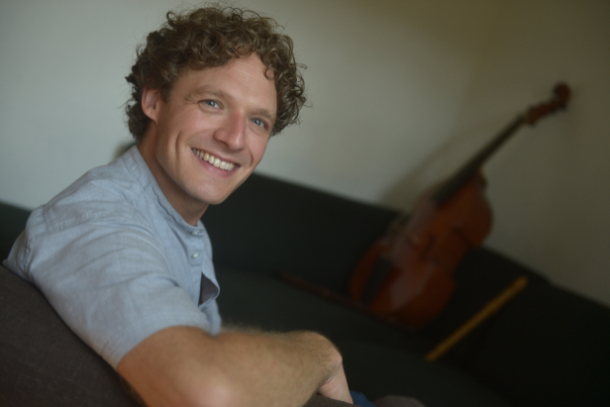
grew up in Salzburg's Pinzgau region, where, surrounded by ancient customs, he soon developed a fascination for how people used to live. His interest in early music is ultimately a consequence of this: he studied recorder and violoncello at the Mozarteum in Salzburg and viola da gamba at the University of the Arts in Bremen. Since then, his artistic activities have extended to all instruments of the recorder and viola da gamba family and thus to solo, chamber music and orchestral projects. His versatility is also appreciated in his collaboration with renowned conductors and ensembles, including “Teatro del Mondo”, “Ensemble Weser-Renaissance”, “Orlando di Lasso Ensemble”, “Sirius Viols”, “la festa musicale” as well as the opera houses in Frankfurt (A. Marcon) and Kiel (V. Luks), which is also documented by numerous CD productions. He is also passionate about passing on what he knows about his instruments, music-making and the music of different eras. One of the most exciting moments for him, however, is when he receives an order for sheet music from a library containing unknown or little-known music that he has no idea how it should sound - and then he finally gets to play it!
- loves to dance the Argentine tango whenever the opportunity presents itself
- can hardly get enough of watching the plants grow, which is too slow for the human eye, whether on the green roof, in the raised bed or in the wild
- always has emergency provisions with him, because you'd rather not see him hungry
to the artist's website>>
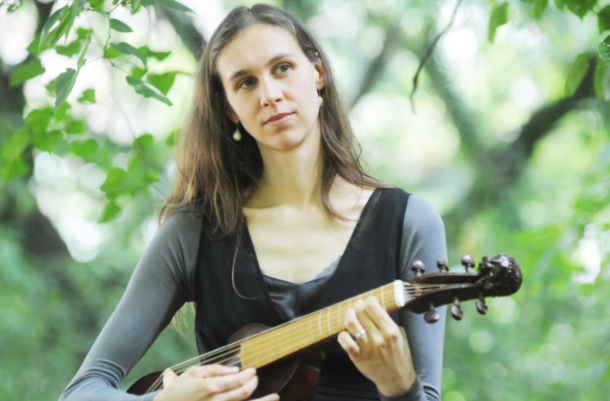
Gambist Marthe Perl studied at the Hochschule für Künste Bremen in the Early Music Department with Hille Perl and Josh Cheatham as well as in Seville with Ventura Rico. During her studies she took part in master classes with Paolo Pandolfo, Pere Ros and Wieland Kuijken. Chamber music is an important part of her work. CD recordings and concerts with ensembles such as “Sirius Viols”, “Ensemble Weser-Renaissance”, “Orlandoviols”, “Dresdner Kammerchor”, “Freiburger Barock Consort”, “Knabenchor Hannover”, etc. document this. In addition to the CDs with La Ninfea, Martha's current discography includes “In Darkness Let Me Dwell”, “Born to be Mild”, “Elements” and “Sinfonie di Viole” with Hille Perl/ Lee Santana (Sony).
- in her free time she likes to go climbing
- she loves spending time in the garden with all her children
- unfortunately, she is useless without coffee in the morning
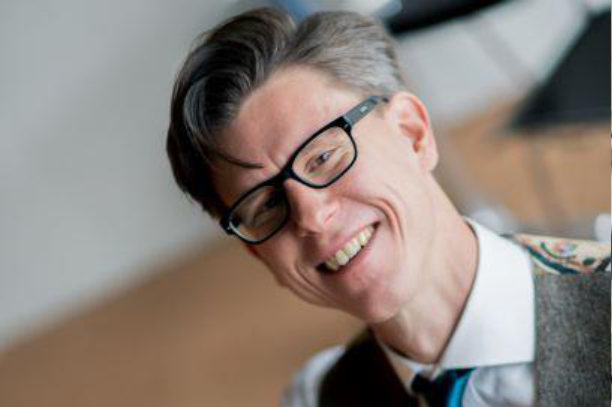
Simon Linné, spent his childhood in a musical home in the countryside near Stockholm (Sweden), where he was influenced by both heavy metal and classical music. To this day, nature is an inexhaustible source of inspiration, creativity and awe for him. Although the guitar was his first instrument, a record awakened his fascination for lute music. A seed that later led him to switch to this instrument. As a lutenist, he is particularly interested in the unknown repertoire of his instrument. In addition to his solo activities, he is a sought-after continuo player and appears on numerous radio and CD recordings with “Vox Luminis”, “A Nocte Temporis”, “Kammerorchester Basel” and “Concerto Palatino”, among others. He has been teaching lute and basso continuo at the Hochschule für Künste Bremen since fall 2006. He has also always enjoyed sports, mathematics and manual work. One of the highlights of his childhood was the Lego chassis with four-wheel drive that he designed himself. Apart from the occasional haircut, he also enjoys splitting wood and shoveling snow. In keeping with his size, he often enjoys eating all kinds of food.
- Goes swimming in the Rhine all year round
- Loves to go hiking alone in the wild expanses of northern Sweden
- Has a weakness for social contacts and always gives them priority over his duties...
- Likes to spend a day in the kitchen, preferably in good company
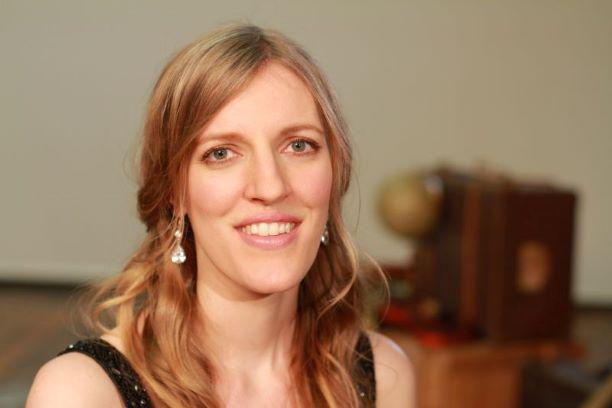
Harpsichordist and organist Nadine Remmert first studied church music at the Hamburg University of Music and Drama and then graduated from the Bremen University of the Arts in harpsichord solo and continuo playing with Prof. Carsten Lohff and Ludger Rémy. She intensified her studies of early music with Prof. Pieter van Dijk at the Conservatorium van Amsterdam and at numerous master classes (with Wolfgang Zerer, Edoardo Belotti, Menno van Delft, Skip Sempé and Frédéric Haas, among others). The young musician performs regularly throughout Germany with various orchestras, ensembles and as a soloist. She has already played with the “Ensemble Weser-Renaissance” and the “Ensemble Elyma” and is a permanent member of the “Bremer Barockorchester” and the early music ensemble “Los Temperamentos”. She has also worked on several CD and radio recordings for Radio Bremen, the CPO and Arcantus labels and has performed in various international productions, master classes and auditions (including the Mozarteum Salzburg summer course and the Balthasar Neumann Choir). Nadine Remmert has been a lecturer for harpsichord, continuo playing and chamber music at the Hamburg University of Music and Drama since 2014.
- loves the Bremen sunrise over the Weser meadows
- would certainly have studied history - if the harpsichord hadn't got in the way
- prefers to relax with a large cup of Japanese green tea and Scottish butter cookies
to the artist's website>>
Welcome Guests
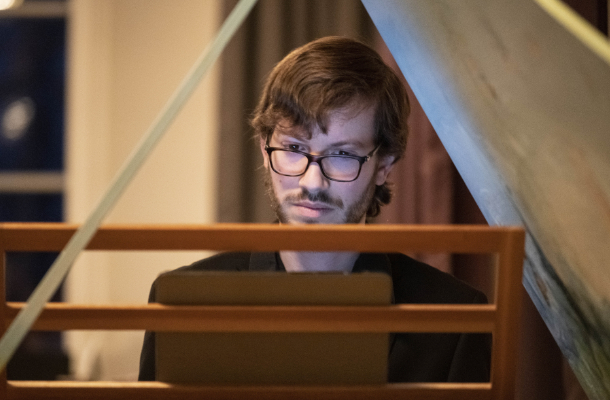
Avinoam Shalev, born in Israel, won the Bach Prize at the 2018 Leipzig International Bach Competition and is a visiting professor for historical keyboard instruments at the Berlin University of the Arts. From 2018-2020, he held a teaching position at the Stuttgart University of Music. In his bachelor studies at the Buchmann-Mehta School of Music in Tel Aviv, he first focused on piano (with Prof. Tomer Lev) and musicology, later changing his major to harpsichord (with Dr. Marina Minkin) and organ (with Alexander Gorin). He completed his studies summa cum laude and at the same time received a full scholarship for the study program at the Accademia Villa Bossi in Italy. He then completed a master's degree in harpsichord and fortepiano with Prof. Zvi Meniker at the HMTM Hanover. He performed as a soloist at the age of 17 as part of a European tour through several countries with the orchestra of the Thelma Yellin High School of Arts and Tchaikovsky's 1st Piano Concerto. Since then, he has played solo recitals on period instruments in Europe and Israel, including at the Göttingen International Handel Festival, the Leipzig Bach Festival and Toujours Mozart Israel. In 2019, he made his debut at London's Wigmore Hall and performed as a soloist with “Il Gusto Barocco” as well as a chamber music evening as part of the Bachwoche Ansbach.
Avinoam is a member of various ensembles: he has been a founding member of the award-winning German-Israeli ensemble Arava since 2014. Since 2015, he has been a member of the baroque orchestra “la festa musicale”, where he performs both as a soloist and continuo player. With the Lynx Ensemble, he brings the connection between Swedish folk music and continental European art music to life. The show Händel Goes Tinder brings Handel's opera music to a younger audience. In 2020 he recorded several CDs with these groups.
Avinoam Shalev received the Deutschlandstipendium and was a long-term Live Music Now scholarship holder, both in Hanover and Berlin. In 2014, he received the ZEIT-Stiftung Ebelin und Gerd Bucerius prize for outstanding achievements as a piano accompanist at the German National Singing Competition. In 2018, he won the 1st Bach Prize and the Bärenreiter Prize for harpsichord at the International Bach Competition in Leipzig.
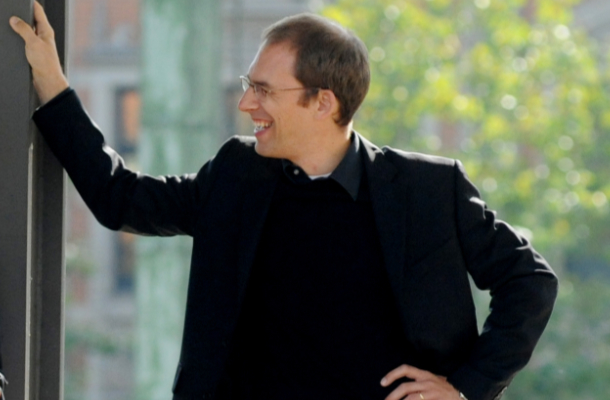
Andreas Küppers studied piano and historical keyboard instruments at the Frankfurt University of Music and Performing Arts with Wiebke Weidanz, among others. Further teachers were Jörg-Andreas Bötticher (Basel) and Michael Behringer (Freiburg). Andreas Küppers has played with the Akademie für Alte Musik Berlin, the Freiburg Baroque Orchestra, the Balthasar Neumann Ensemble, the BRock Orchestra, the Staatskapelle Berlin, the Junge Deutsche Philharmonie, the Chamber Orchestra of Europe, the Deutsche Kammerphilharmonie Bremen, the Frankfurt Museum Orchestra, the Stuttgart Chamber Orchestra, and has worked with Thomas Hengelbrock, among others. He has worked with Thomas Hengelbrock, Fabio Biondi, Michael Hofstetter, Ton Koopman, Yannick Nézet-Seguin, Christophe Coin, Louis Langrée, Michael Schneider, Jérémie Rhorer, Andrea Marcon, Stephen Isserlis and Kristin von der Goltz, among others. Andreas Küppers regularly works as René Jacobs' musical assistant on major international baroque opera productions. He has been engaged several times as harpsichordist, pianist and musical assistant for opera productions at the Berlin State Opera, the Dortmund Theater, the Theater an der Wien, the Frankfurt Opera, La Monnaie Brussels and the Wiesbaden State Theater.
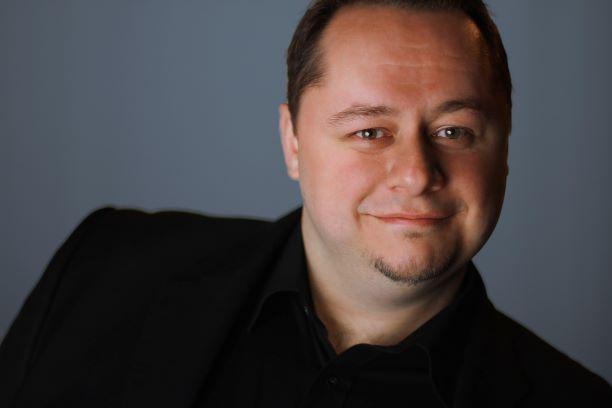
Hamburg-born tenor Mirko Ludwig gained his first singing experience as a boy soprano with the Uetersen choirboys. He studied with Professor Thomas Mohr and Krisztina Laki at the University of the Arts Bremen. Here he also received important impulses in the field of historical performance practice from Manfred Cordes and Detlef Bratschke, among others. In addition to the major solo roles in the concert and oratorio repertoire, including as the Evangelist in the great works of J.S. Bach, Mirko Ludwig is in great demand as an ensemble singer. In the repertoire of the 16th and 17th centuries (including Gabrieli, Praetorius and Schütz), he not only takes on the tenor parts, but can also be used for the high registers of the “tenor altus”. With his vocal ensemble “Quartonal”, he won first prize in the vocal ensemble category at the German Choir Competition in Dortmund in 2010 and has also won several prizes at international competitions in recent years. His second album was released by Sony Classical in spring 2017. He regularly performs with renowned ensembles such as “Weser-Renaissance Bremen”, “Balthasar-Neumann-Chor”, “Holland Baroque”, “Cantus Cölln”, “Collegium Vocale Gent”, “Les Cornets Noir”, “Gesualdo Consort Amsterdam”, “Himlische Cantorey” and “Cantus Thuringia”.
Numerous CD and radio recordings for Sony Classical, Deutsche Grammophon, cpo, NDR Kultur, Radio Bremen, Deutschlandradio Kultur and others document his musical work.
The young singer gained stage experience at the Hamburg State Opera as a member of a vocal ensemble for baroque operas. He has also sung the roles of “Tamino” (The Magic Flute - W.A. Mozart), “Peter Quint” (The Turn of the Screw - B. Britten) and “Orpheus” (Orpheus in the Underworld - J. Offenbach) in productions at the Hochschule für Künste Bremen.
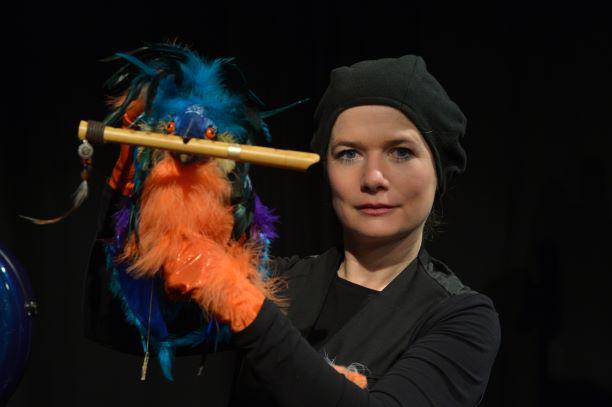
Jeannette Luft, born in Zwickau, studied puppetry and performing arts at the Ernst-Busch Academy of Dramatic Arts in Berlin after training as a make-up artist at the Staatstheater Stuttgart. From 2008 to 2011, she was a permanent ensemble member of the puppet theater “Theatrium Bremen”. Since 2011, she has been a co-founder of the successful puppet theater “Mensch, Puppe!” (based in Bremen, Germany) for which she has developed numerous productions both as children's theater and for evening programs aimed at adults. These include Hermann Hesse's “Siddhartha” in a stage version for puppet theater by Philip Stemann, Franz Kafka's “The Trial” in a version for puppet theater and drama based on the novel of the same name, “The Physicists” by Friedrich Dürrenmatt as well as “Hansel and Gretel”, “Pummel Plüschmoors” and “Peterchens Mondfahrt” as puppet theater for children. Numerous guest performances, for example in St. Petersburg, Frankfurt am Main, Hamburg, Hanover, Berlin and Munich, as well as various festivals, round off the versatile work in Bremen's puppet theater.
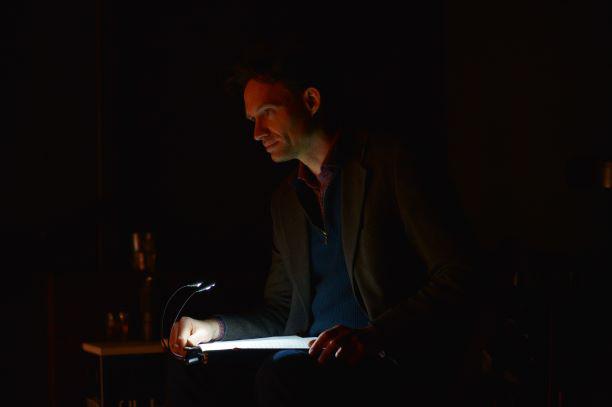
Philip Stemann, born in Stade, initially studied Eastern European history, Slavic studies and philosophy in Heidelberg. He then began his work in the theater as an assistant director at the Stadttheater Heidelberg and the Deutsches Theater Berlin. This was followed by two years as artistic production manager and director at the TIF / Staatsschauspiel Dresden, where he staged a German premiere by Martin Crimp, among others. From 2003 to 2006, Philip Stemann studied drama directing at the Ernst Busch Academy of Dramatic Arts in Berlin. He has been working as a freelance director since 2004. His work has taken him to the Maxim Gorki Theater Berlin, the TAT Frankfurt/Main, Theater Bremen and Theater Konstanz, among others. Philip Stemann has also been directing music and puppet theater since 2013. He is closely associated with the Bremen puppet theater “Mensch, Puppe!”, for which he works not only as a director but also as an author and musician. Most recently, he worked there on a production of Hermann Hesse's “Siddhartha”.
to the artist's website>>
